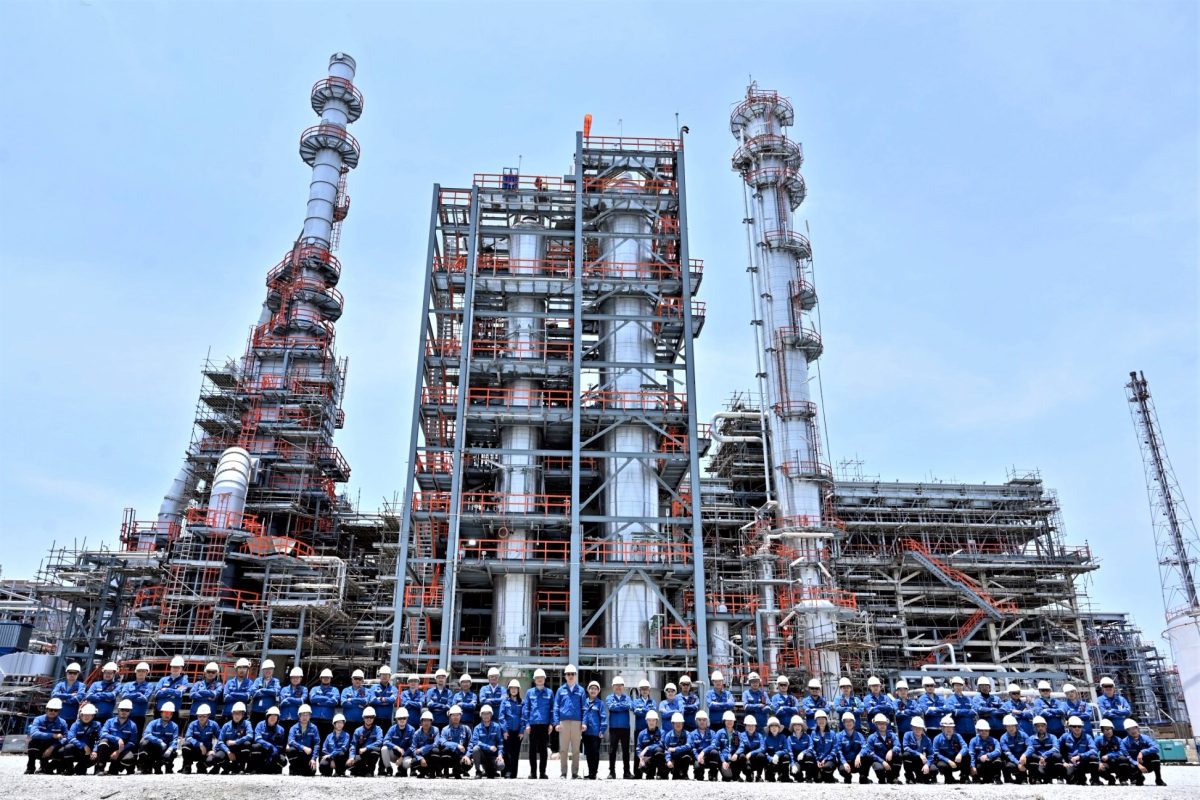Mr. Chaiwat Kovavisarach, Group Chief Executive Officer and President of Bangchak Corporation Public Company Limited, stated that this is Thailand's first fully integrated standalone Neat SAF production facility. The unit oversees the entire value chain—from feedstock procurement and processing to product distribution—under the International Sustainability and Carbon Certification (ISCC) scheme. With an initial production capacity of 1 million liters per day, the facility employs Hydroprocessed Esters and Fatty Acids (HEFA) technology, processing fatty acids or vegetable oils, such as used cooking oil, into high-quality SAF. The production process was developed in collaboration with two global technology leaders: Desmet of Belgium, specializing in pretreatment technologies, and UOP Honeywell of the United States, a pioneer in hydroprocessing systems. This collaboration ensures quality control across all stages, including feedstock handling, hydrogenation, molecular restructuring, and fractionation, resulting in SAF that meets ASTM aviation fuel standards. The facility primarily produces Neat SAF, with byproducts such as Bio-LPG and Bio-Naphtha, and is currently undergoing Plant Performance Test Runs.
According to the International Energy Agency (IEA) and the International Civil Aviation Organization (ICAO), the aviation sector emits around 492 million tons of CO? annually, despite accounting for only 2.9% of global energy consumption. SAF is therefore a critical driver in global decarbonization strategies, capable of reducing aviation emissions by up to 80% - a more cost-effective and impactful solution compared to other available technologies. Several countries have introduced SAF blending mandates, including the EU (2% by 2025 and 6% by 2030), the UK (2% by 2025 and 10% by 2030), and Singapore (1% by 2026 and 5% by 2030). Thailand is currently considering the introduction of such a mandate.
Beyond its carbon reduction benefits, SAF significantly improves air quality. It contains minimal aromatic compounds - substances linked to serious health risks, including cancer and extremely low levels of sulfur - helping to reduce particulate matter (PM2.5) emissions and mitigate the risk of acid rain.
This initiative underscores Bangchak's leadership in energy innovation, building on more than 20 years of experience in renewable energy. The journey began in 2000 with a collaboration with the Royal Thai Naval Dockyard to develop a biodiesel plant using used cooking oil for the Royal Chitralada Projects, followed by Thailand's first commercial biodiesel offering at Bangchak service stations in 2004. In 2008, Bangchak launched its used cooking oil buy-back program from communities and networks, reinforcing its position as a national leader in renewable energy.
Today, Bangchak moves further into the future of clean energy with Neat SAF, emphasizing sustainability across its entire supply chain. Through the "Fry to Fly" campaign, the public can sell used cooking oil at over 290 Bangchak service stations nationwide, with a target to expand to 2,000 stations by the end of 2025. The company is also building partnerships across the public and private sectors to ensure long-term feedstock security and is preparing to implement a Book & Claim system, a mechanism adopted by leading global organizations, that will allow passengers and airlines to claim SAF usage and receive verified carbon reduction credits, accelerating the transition to sustainable aviation in a tangible and scalable way.
Source: Bangchak Corporation
